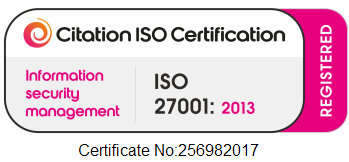SMS is a cost-effective tool to add to your recruitment strategy, especially when it is cleverly interlinked with your favourite Applicant Tracking Software.
But despite this, it is clear that many organisations still rely heavily on other communication channels.
And while phone calls, emailing and our beloved video calling methods are highly valued for a good reason, SMS can also provide a whole range of benefits.
The problem with email is, it only has an open rate of around 11%.
For starters, there is a lot less guarantee that it is actually going to reach the candidate, especially when attempting to reach them for the first time.
Not only is there a concern whether that email will deliver but when it does, their email provider may flag it as spam, leaving it to sit in a junk folder. When this does happen, the candidate will receive no notification of the email and will need to go to the added effort to check their spam folder, something you cannot guarantee every candidate will do. After all, it is called spam for a reason.
So, why do we rely heavily on email even though it is a higher risk?
At the start of the journey, we want to instantly engage with candidates, but at this stage, we do not want to commit too much time before properly accessing their suitability.
This means email fills the communication void before we decide to voice call them, video call them or meet them in person for the first time. This is generally stage two or three of the recruitment process, the time when we really learn who they are and what they have to offer.
These forms of communication are necessary for all requirement processes, but, do require all stakeholders to dedicate a chunk of their time, making it unsuitable at stage one when engaging in the first point of contact.
But, if we do not engage with them at all, the candidate will no longer be there even when we have accessed them, so we ensure we send them their acknowledgement email and swiftly process them to the next stage having been successfully shortlisted.
So, why should we add SMS to this strategy?
The difference is, SMS is instantly received. There is no opportunity to fall into spam folders, as long as you have their number, you are almost guaranteed to reach them as 79% of UK adults are now using a smartphone.
Not only are you guaranteed to reach them, but the response rate is also much higher. With the average UK adult spending around 154 minutes on their phone a day, you are likely to get the same-day response, as SMS has a 98% open rate done generally within three minutes of it being received.
And not only does this instant receival and higher response rate make it great for the initial point of contact, but SMS can also be a handy tool for follow-ups, helping to increase candidate experience through continuous communication.
For example, this could be particularly useful during the interview stage.
The candidate can not only agree to a time over SMS but can re-confirm their attendance whether that’s 30 minutes, a week or a day before their slot. This helps save the employer both time and money if they were not to show.
But before even getting to this stage, SMS is a useful way to pre-screen candidates, helping to gauge whether they are seriously interested in the position before committing any further time processing them or waiting for a reply through other channels.
In particular, it can be seen as one of the best ways to target Millennials and Generation Z candidates who highly value instant communication and prefer doing so in a less formal, and unconventional environment, as social media has proved.
It can also make you much more competitive, especially in sectors like care where candidates are only averagely around for 24 hours, making it a much more viable contender to provide the ability to secure candidates before competitors.
So, with those points in mind, if you want to significantly reduce your time to hire and create a more competitive recruitment strategy, then SMS could be the answer.
But what we will say is, be strategic in your approach. Consider what is and is not suitable for SMS. A job offer, for example, probably is not.
Make sure your professionalism and brand tone stays intact. Build relationships and be mindful not to contact candidates at unsociable hours.
Include all relevant information, and be sure that it is clear to a candidate who you are. But do not overdo it. Long messages with an excessive amount of information may be hard to digest.
If you need any further advice or guidance on how to add SMS into your recruitment strategies, then get in touch!
For more recruitment tips and advice, subscribe to our newsletter below.




Comments are closed